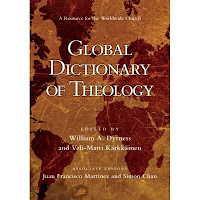Stephen Sizer expands on the roots of Christian Zionism and its political implications during his lecture on Wednesday in Demaray Hall.
By BETH DOUGLASS, News Writer
Published: April 29 2009
The United States’ support of Israel is built on faulty principles and is hurting the country’s foreign policy, evangelical Anglican pastor and London author Stephen Sizer said.
Yesterday afternoon, Sizer spoke in Demaray Hall 150 at an event called “Christian Zionism: What is it? Its history, theology and political impact on the world today.”
Throughout the Israel-Palestinian conflict, the United States has offered unwavering support to Israel, Sizer said. Much of this is due to the prevalence of Christian Zionism, or Christians who support the modern political state of Israel, established in 1948, he said.
There is an antipathy toward the Arabs and Palestinians within Christian Zionism, Sizer said. He countered that the Bible calls us to reconciliation and tells us to love our enemies, he said.
“This theology is impacting attitudes and opinions in the Middle East,” he said. There is a view that God is blessing America because the nation is helping Israel, he said, resulting in the demonizing of Islam and the characterization of Arabs as dogs and liars.
Giving Israel a geographic homeland in Palestine may not be the correct fulfillment of God’s Old Testament promise to Israel, he said.
Palestine was turned into a secular state for Israel after World War II, according to the Rooftop Productions film “With God on Our Side.” From then on, Israel continued to take over Palestinian land, leaving many refugees.
Israelis then engaged in what some call an “ethnic cleansing” of Palestinians, the film stated.
Growing up in the church and hearing many Old Testament Bible stories, U.S. Christians tend to idealize and romanticize Israel and Israeli culture, the film said.
When Americans hear about a conflict involving Israel, it seems obvious whose side they are on, the film said.
SPU is a very social justice-minded campus, yet there is little conversation about the situation in Palestine, said junior Kristin McCarthy, who helped plan the event.
“I think it is so sad how few people actually know about what is happening in Israel and Palestine,” she said.
Twenty to 40 million Americans support the Christian Zionism movement, according to the Pew Forum on Religion.
“I argue that it is shaping your foreign policy in the Middle East,” Sizer said.
Pro-Israeli groups are probably the most powerful lobbyists on Capitol Hill, Sizer said. Many of these lobbyists are Christian organizations.
Two-thirds of U.S. foreign aid goes to either Egypt or Israel, said John Berg, director of ministry advancement and development for a nonprofit organization called the Middle East Fellowship. The U.S. gives $10 billion per year to Israel, consisting of both official and unofficial foreign aid, he said.
“So much of our taxpayer money does go to the state of Israel,” said Professor of English Doug Thorpe. This makes U.S. Christians deeply invested in the Israel-Palestinian conflict, he said, and people are suffering because of how American foreign policy supports Israel.
No U.S. senator will speak against Israel, Sizer said, because to criticize Israel would be political suicide.
Some people have said Sizer’s viewpoint is anti-Semitic. However, he firmly upholds that this is not the case.
“I repudiate anti-Semitism unequivocally. Anti-Semitism is a form of racism,” Sizer said.
Fear of being anti-Semitic should not keep us from thinking critically about Christian Zionist ideas, Berg said.
There is a difference between Jewish ethnicity, Jewish religion and the modern country of Israel, Berg said. Historic anti-Semitism was against the Jewish ethnicity, he said, and Christian Zionism has redefined anti-Semitism.
The purpose of having Sizer speak on campus was not to advocate one particular viewpoint, but to start a conversation about the issue, McCarthy said.
“I think this is a really important conversation for the Christian community to be having,” she said.
Source: The Falcon Online

 World Vision’s executive director for international relations until March 1, 2009,
World Vision’s executive director for international relations until March 1, 2009, 


 “This study of Christian Zionism, based on Stephen Sizer’s doctoral thesis, is of seminal significance. It provides a fascinating survey of the history of Christian Zionism and an indepth analysis of the theology of this highly important and influential movement.”
“This study of Christian Zionism, based on Stephen Sizer’s doctoral thesis, is of seminal significance. It provides a fascinating survey of the history of Christian Zionism and an indepth analysis of the theology of this highly important and influential movement.”

